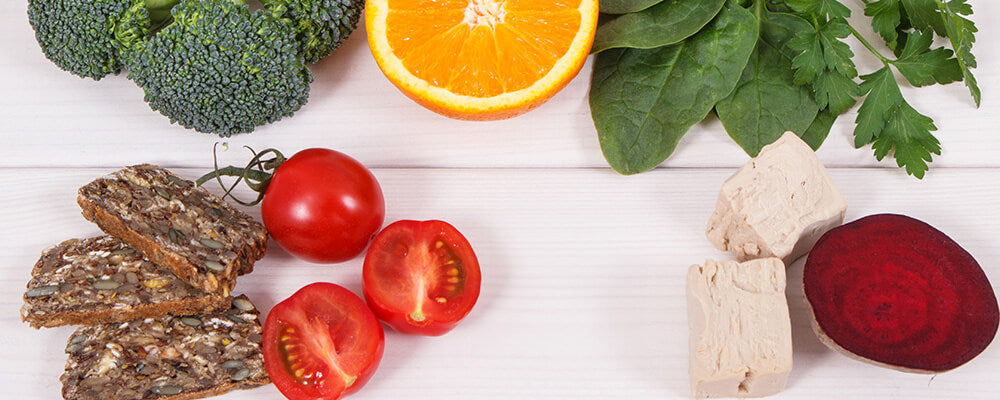What is folate used for: benefits, how much and how to consume it

Can you imagine being able to strengthen your body from within?
Protecting you from disease, making sure every bite nourishes your cells, and taking care of your heart so it keeps beating strong for years to come. Sounds amazing, right?
Discover the power of folate: what it's good for and more delicious ways to get the amount your body needs.
What is folate?
Folate is like a discreet but indispensable friend that helps you in all aspects of your body and mind.
Be very careful not to confuse folate with folic acid, it is a mistake that even many doctors make:
Folate is the natural form of vitamin B9, found in foods such as vegetables, fruits and legumes.
Folic acid is the laboratory-created version used in supplements and to fortify foods that, if taken for a long time, can cause:
- Hide a lack of vitamin B12 : risk damaging your nerves.
- Impairs memory and thinking: in older people, especially if they are lacking vitamin B12.
- If you are pregnant and take too much folic acid : the baby may have problems with its brain and blood sugar.
- If you had prostate or bowel cancer : it may come back.
- Drinking too much of it builds up in your blood , so you can't process it properly and it can make you sick.
- Gastrointestinal discomfort : may cause nausea, diarrhea or stomach pain.
- Allergic reactions: In rare cases, it can cause severe allergic reactions such as anaphylaxis (difficulty breathing, rapid heartbeat, and swelling)
- Interaction with other medications: such as birth control pills that can cause blood clots.
What are the benefits of folate?
What is folate for? It is a caregiver for your entire body. Look at everything it does for you:
- Take care of your genes (DNA) : for the proper development and functioning of your body.
- It helps you absorb nutrients : your body makes better use of iron, vitamins C and B12, as well as proteins.
- It is key during pregnancy : it prevents malformations in the baby.
- It may protect you against cancer : Some studies suggest that it helps prevent certain types of cancer, such as cervical, breast, colon, brain and lung cancer.
- Take care of your heart : reduce substances that can damage it (homocysteine).
- Keeps your mind sharp : Protects your brain and could prevent dementia.
- It lifts your spirits : It can help prevent depression.
How much folate should I consume each day?
The recommended daily intake varies depending on your situation:
- Adult women: 400 micrograms/day
- Pregnant women: 600 micrograms/day
- Infants: 500 micrograms/day
Where can I find folate?
The best way to get folate is through a balanced diet. Here are the recommended amounts:
- Spinach (1 cup cooked), 262 mcg.
- Beef liver: 3 oz, 215 mcg.
- Black-eyed peas: 1 cup cooked, 210 mcg
- Asparagus: 8 stalks, 178 mcg
- Broccoli: 1 cup cooked, 104 mcg
- Brussels sprouts: 1 cup cooked, 156 mcg
- Mustard greens: 1 cup cooked, 104 mcg
- Red beans: 92 mcg
- Romaine lettuce: 1 cup raw, 64 mcg
- Avocado — ½ cup, 59 mcg
- Wheat germ: 2 tablespoons, 40 mcg
- Orange — 1 medium. 29 mcg
Should I take folate supplements?
If you are deficient in this nutrient, you should consider it, because you will get the benefits of folate for stress, mood, heart care and many others. The supplement, Serena, has the exact amount that women need. 416 mcg.
If you take medications for cancer, autoimmune diseases, epilepsy, or ulcerative colitis, talk to your doctor before taking folic acid supplements.
Next time you feel out of balance, ask yourself if you are giving your body the folate it needs. Your health and well-being come first.
Important: This content is for educational purposes only and should not be used as medical advice. If you have any health conditions, please consult your doctor.
Sources





Comments